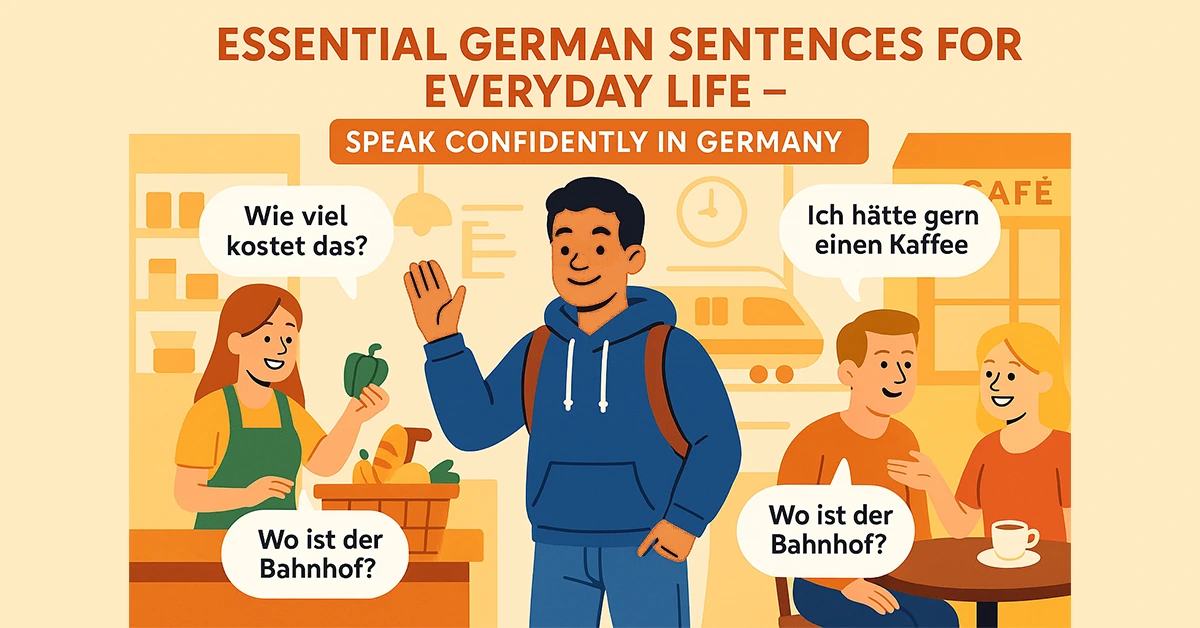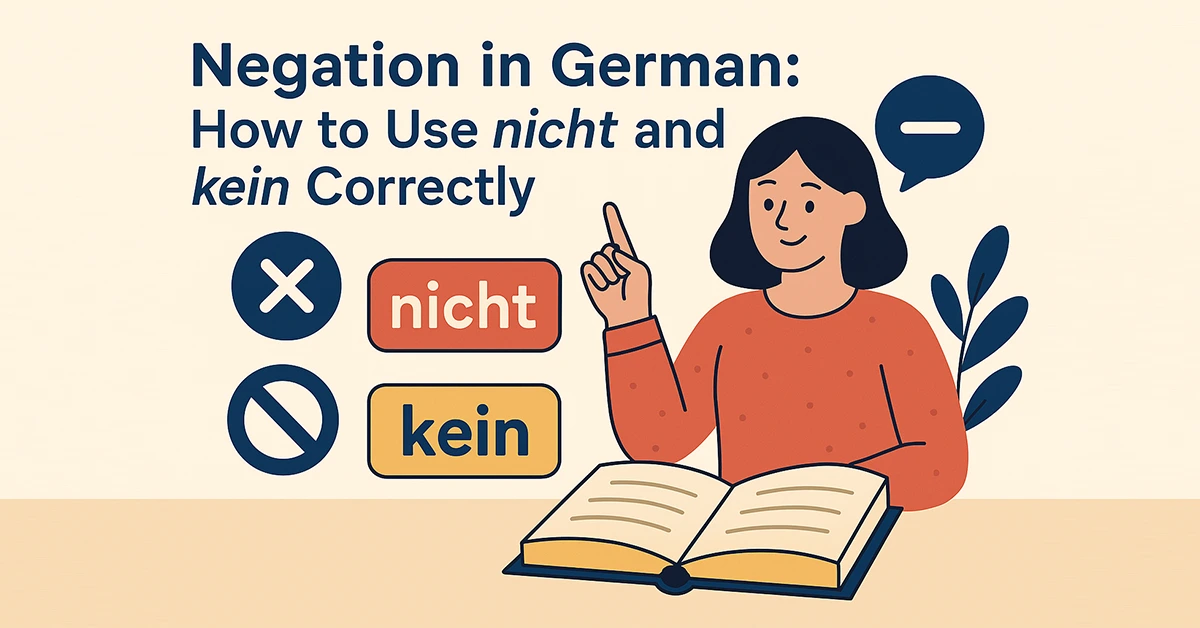A1 German
-

Essential German Sentences for Everyday Life
Learn essential German sentences for everyday life in Germany. From shopping to doctor visits, master useful phrases and speak confidently with locals.
-

Negation in German: How to Use nicht and kein Correctly
Learn how to use nicht and kein in German with clear explanations, real-life examples, and practical tips. Master German negation step by step in this guide.